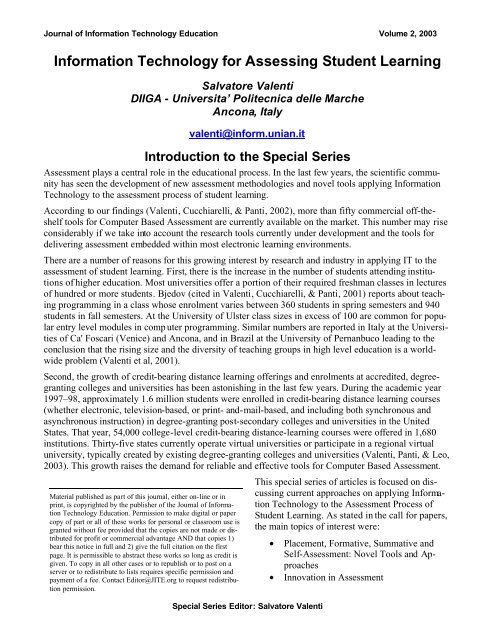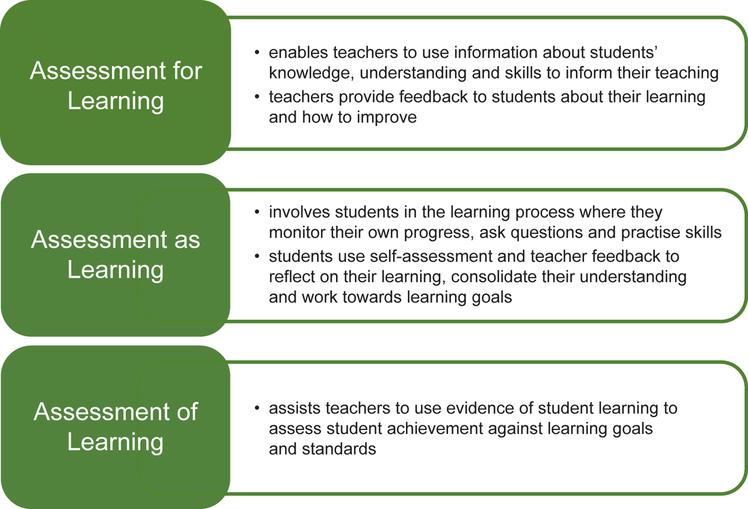Technology to assess student learning includes various tools and systems that can measure and evaluate student knowledge and understanding. These technologies can range from online quizzes and assessments to learning management systems and educational apps, providing educators with valuable insights into student progress and performance.
In today’s digital age, technology has become an integral part of the educational experience, offering new ways to gauge and improve student learning outcomes. Through the use of innovative assessment technology, educators can gain a deeper understanding of their students’ strengths and areas for improvement, enabling personalized instruction and targeted interventions.
By harnessing the power of these tools, teachers can better support student achievement and create more effective learning environments. We will explore the various technologies available for assessing student learning and their impact on educational outcomes.

Credit: www.shift2future.com
The Role Of Technology In Education
Technology plays an important role in education, especially in assessing student learning. It increases accessibility by providing diverse learning resources and tools for all students. This inclusivity ensures that no student is left behind in the educational journey. Furthermore, technology enhances engagement by offering interactive and personalized learning experiences. This encourages active participation and boosts student motivation. With the integration of technology in education, educators can better understand students’ progress and tailor their teaching methods to meet individual learning needs.
Challenges In Assessing Student Learning
Traditional Assessment Limitations: Assessing student learning through traditional methods often fails to capture the diverse learning styles of students.
Diverse Learning Styles: Students have unique ways of acquiring knowledge, making it challenging to gauge their understanding accurately.
Advancements In Technology For Assessment
Adaptive learning platforms have revolutionized the way students learn by personalizing their educational experiences. These platforms utilize algorithms to analyze students’ performance and provide tailored content and recommendations. By adjusting the difficulty level of questions and exercises based on individual needs, these platforms maximize learning potential.
The advent of technology has also allowed educators to gather valuable data-driven insights to assess student learning. With the help of learning management systems and educational software, instructors can track students’ progress, understand their strengths and weaknesses, and identify areas that require additional attention. These insights enable educators to customize their teaching methods and provide targeted interventions when necessary, leading to improved outcomes for students.

Credit: www.yumpu.com
Personalized And Adaptive Assessment
Assessing student learning has evolved with the help of personalized and adaptive technology. With customized learning paths, students can now progress at their own pace and focus on areas where they need additional support. This targeted approach allows for a more effective and efficient learning experience.
In addition to customized learning paths, technology also enables real-time feedback. Students receive immediate feedback on their progress, allowing them to make adjustments and improve their learning outcomes. This timely feedback motivates students to continue their learning journey and helps them stay on track.
Overall, technology has revolutionized student assessment by providing personalized and adaptive tools that promote customized learning paths and real-time feedback. With these advancements, educators can better support student growth and facilitate a more engaging and effective learning environment.
Ethical Considerations In Tech-enabled Assessment
Ethical considerations in tech-enabled assessment are crucial for ensuring fair and secure evaluations. Privacy and data security must be prioritized to protect student information. Equitable access is essential to offer equal opportunities for all learners.
Impact On Teachers And Educational Institutions
Technology has had a significant impact on teachers and educational institutions. There has been a shift in teaching approaches, with educators incorporating technology into the curriculum. This change has allowed for more personalized and interactive learning experiences, ultimately benefiting both students and teachers. Additionally, it has provided opportunities for innovative and engaging teaching methods that cater to different learning styles, making education more inclusive and accessible. As a result, teachers have been able to assess student learning in a more comprehensive and efficient manner, leading to improved educational outcomes. “`
Future Of Technology-driven Assessment
Technology plays a crucial role in assessing student learning. AI and machine learning integration enables personalized assessments based on student performance. Virtual reality applications offer immersive learning experiences for assessment and training. Interactive simulations help in evaluating complex skills and knowledge.
Conclusion And Recommendations
Technology offers innovative ways to assess student learning, enhancing engagement and providing real-time feedback. By leveraging digital tools and platforms, teachers can personalize instruction and track progress, leading to more effective teaching strategies and targeted recommendations for academic growth.
| The use of technology in assessing student learning is valuable for enhancing educational outcomes. |
| It is crucial to strike a balance between utilizing technology and fostering human interaction. |
| Teachers should engage in continuous professional development to stay updated and proficient. |

Credit: techtoolsela.weebly.com
Frequently Asked Questions For Technology To Assess Student Learning
How Does Technology Help In Assessing Student Learning?
Technology provides various assessment tools such as online quizzes and interactive platforms that enable educators to gather real-time data on students’ progress and understanding. This helps to identify areas of improvement and personalize the learning experience to cater to individual needs.
What Are Some Benefits Of Using Technology For Student Assessment?
Using technology for student assessment offers several benefits, including increased efficiency, instant feedback, and the ability to track and analyze data. It also provides a more engaging and interactive learning experience, allowing students to demonstrate their knowledge in different ways and fostering critical thinking skills.
Can Technology Help In Assessing Different Learning Styles?
Yes, technology can be a powerful tool to assess different learning styles. It provides flexibility in presenting information through various mediums such as videos, audio recordings, and interactive simulations. By catering to different learning styles, technology helps educators understand each student’s strengths and weaknesses and adapt teaching strategies accordingly.
How Can Technology Assist In Evaluating Higher-order Thinking Skills?
Technology offers opportunities for students to engage in higher-order thinking tasks, such as problem-solving, critical thinking, and creativity. Interactive platforms and simulations encourage students to apply their knowledge in real-life scenarios, enabling educators to assess their ability to analyze, evaluate, and synthesize information.
Conclusion
Embracing technology for student learning can revolutionize educational practices. By leveraging innovative tools, educators can effectively assess and enhance student performance. The digital era offers endless possibilities to tailor teaching methods and evaluate academic progress. Engaging with technology fosters a dynamic and interactive learning environment for students.